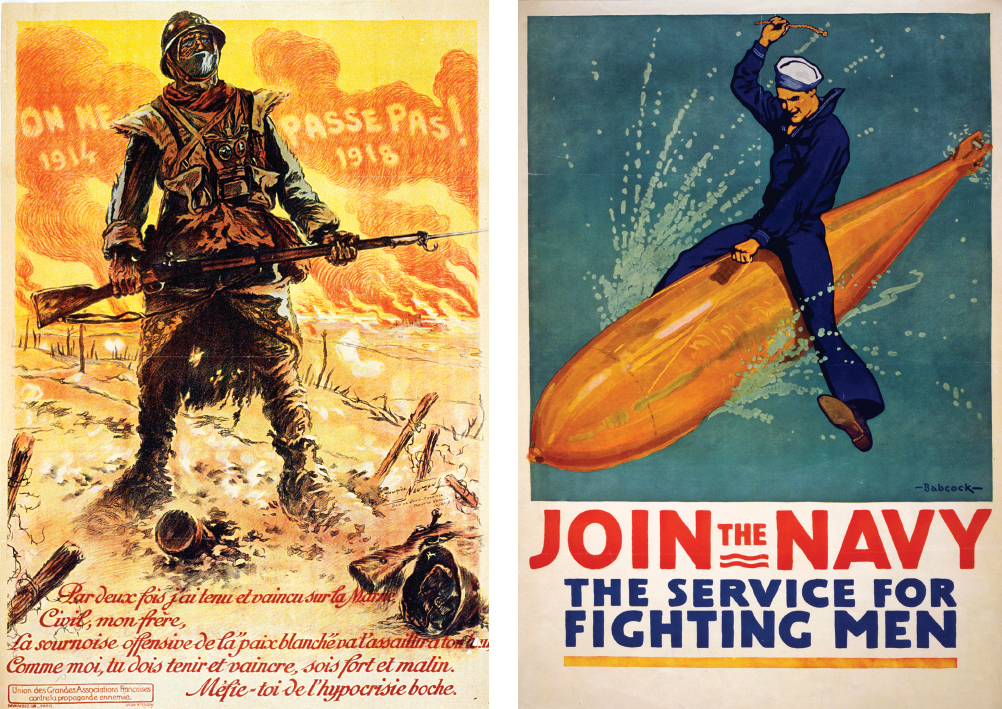Growing Political Tensions
During the first two years of war, patriotic nationalism and belief in a just cause united peoples behind their national leaders. Each government used rigorous censorship and crude propaganda to bolster popular support. (See “Picturing the Past: Wartime Propaganda Posters.”) Patriotic posters and slogans, slanted news, and biased editorials inflamed national hatreds, helped control public opinion, and encouraged soldiers to keep fighting.

CONNECTIONS: The “They shall not pass” poster was created after France had been at war for four years, while the naval recruitment poster came out before American troops were actively engaged overseas. How might the country of origin and the date of publication have affected the messages conveyed?
Political and social tensions re-
In April 1916, Irish republican nationalists renewed their rebellion against British rule. During the great Easter Rising, armed republican militias took over parts of Dublin and proclaimed an independent Irish Republic. After a week of bitter fighting, British troops crushed the rebels and executed their leaders. Though the republicans were defeated, the Rising set the stage for the success of the nationalist Sinn Fein Party and a full-
On all sides, soldiers’ morale began to decline. Numerous French units refused to fight after the disastrous French offensive of May 1917. Facing defeat, wretched conditions at the front, and growing hopelessness, Russian soldiers deserted in droves, providing fuel for the Russian Revolution of 1917. In the massive battles of 1916 and 1917, the British armies had been “bled dry.” Only the promised arrival of fresh troops from the United States stiffened the resolve of the allies.
The strains were even worse for the Central Powers. In October 1916, a young socialist assassinated the chief minister of Austria-
Germans likewise suffered immensely. The British naval blockade greatly limited food imports, and the resulting scarcity had horrific results: some 750,000 German civilians starved to death. For the rest, heavy rationing of everyday goods undermined morale. A growing minority of moderate socialists in the Reichstag gave voice to popular discontent when they called for a compromise “peace without annexations or reparations.”
Such a peace was unthinkable for the Fatherland Party. Yet Germany’s rulers faced growing unrest, strikes, and political defections. Thus Germany, like its ally Austria-
>QUICK REVIEW
What significant changes did World War I bring to the lives of European civilians?